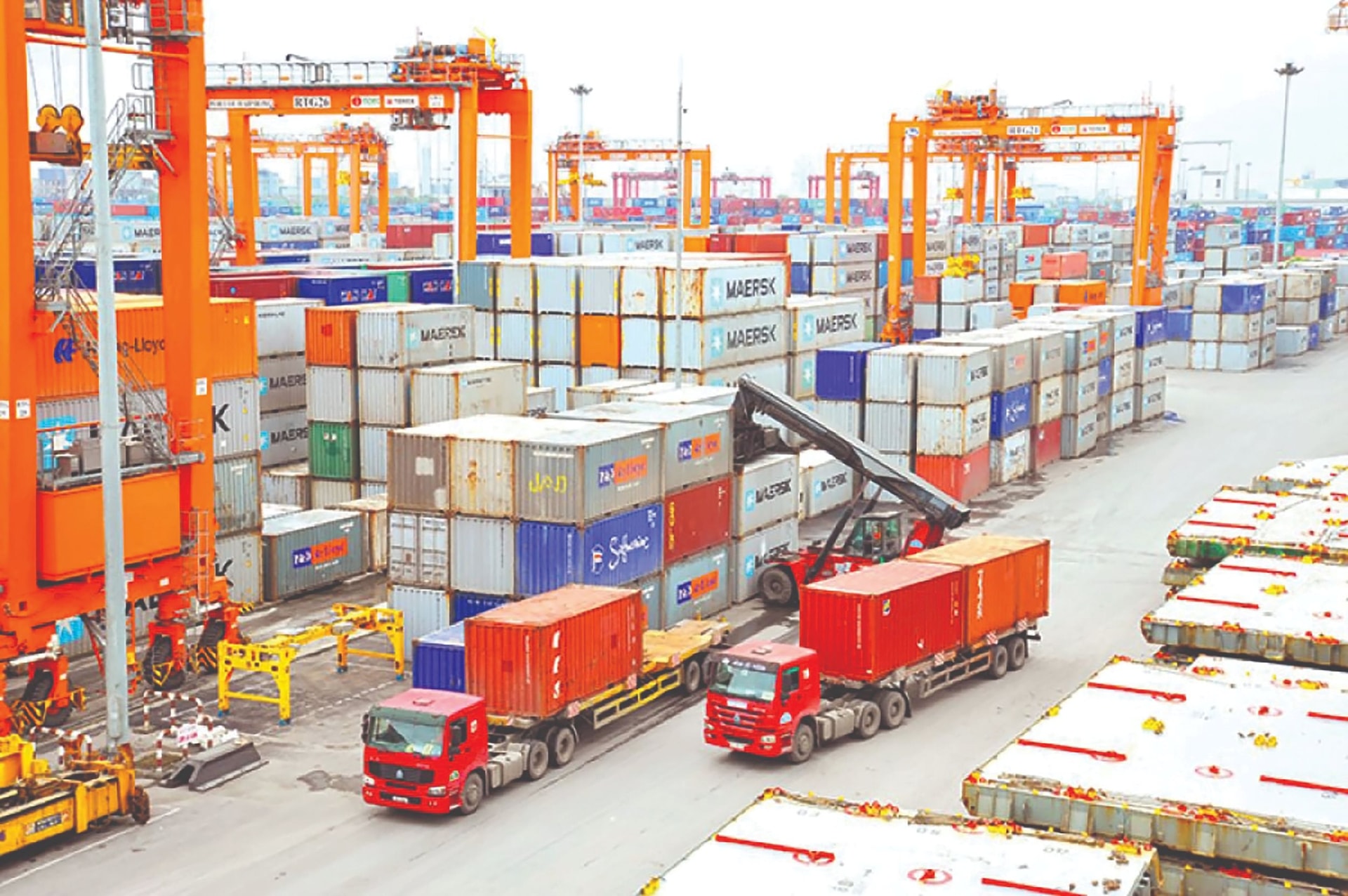Logistics, along with information technology and communication, financial and banking services, and tourism services, is considered a high-value-added service sector for the national economy. It plays an increasingly important role in the transformation of the growth model, restructuring the economy, and has been identified by our Party and State as a priority sector for development until 2050.
The role of the logistics sector in the national economy
Although logistics services have become an important sector and the spearhead of many localities and cities, there are still many issues that have not received adequate attention, investment, and corresponding development, such as logistics infrastructure, especially logistics industrial parks, logistics centers, and warehouse systems.

These aspects of logistics real estate have not been sufficiently prioritized in Vietnamese laws and policies. Currently, we still lack breakthrough solutions for the development of logistics through logistics laws and policies, investment in logistics infrastructure, the development of competitive logistics enterprises, expanding the logistics market, and developing logistics and digital human resources to contribute to the innovation of the economic growth model and sustainable development.
Isn’t it paradoxical that we all recognize that “the production process only ends when the products and goods reach the final consumers at home and abroad”? Despite this understanding, we do not pay enough attention to investing in and building logistics infrastructure systematically, efficiently establishing and operating the logistics real estate market, and even the business conditions for logistics services and some other policies related to logistics development. They have been slow to be implemented and have not truly encouraged attracting foreign logistics companies and corporations to invest in logistics business of Vietnamese.
Despite the positive contributions of Vietnam’s logistics industry in improving the legal framework and institutional structure, as well as enhancing the role of logistics in the national economy according to the direction of Resolution of the 13th National Party Congress, there are still untapped advantages and untapped potential at the local level. The logistics infrastructure has gradually received more attention, with the government, ministries, sectors, and localities investing in the development of logistics infrastructure to serve production activities, domestic and international goods circulation.

However, there are still existing inefficiencies and shortcomings in logistics operations, such as high logistics costs, especially increased maritime transport costs, which pose difficulties for import and export activities. Fragmentation, disruptions, and local congestion in the transportation supply chain, particularly road, rail, and sea transportation, are also issues.
Until now, the issue of training human resources for the logistics industry remains under the industrial management code 75106 - Industrial Management with Level IV code (since October 2017) and now under Circular 09/2022/TT-BGDDT issued on June 6, 2022, logistics still falls under the industry code 85106 - Industrial Management. However, Decision 200/QD- TTg issued on February 14, 2017, on the plan to enhance the competitiveness of logistics services in Vietnam until 2025, and Decision 221/QD-TTg issued on February 22, 2021, amending and supplementing Decision 200/QD-TTg, outline 60 tasks, including specific tasks to enhance logistics training at the university level. Universities are conducting research to develop logistics programs, curricula, and establish logistics departments. The recognition of logistics training majors and the responsibility for implementation in 2023 have been assigned to the Ministry of Education and Training, Ministry of Industry and Trade, and Ministry of Transport by the Prime Minister.
In addition to these achievements, there are various other reasons that hinder the full realization of the important role of Vietnam’s logistics industry in the transformation of the growth model and restructuring of the economy, as well as the need to improve quality, efficiency, rapid and sustainable development. These reasons include the lack of a source of goods, as Vietnam primarily exports on an FOB basis and imports on a CIF basis. There are limitations in logistics infrastructure structure and transportation costs on roads, as well as additional port charges imposed by foreign shipowners. The state management personnel in logistics are limited in terms of both quantity and expertise. Many officials have not received proper training in the field and perform logistics activities as an additional task. The limited state staffing for logistics management affects the quality of assigned work. As of now, the logistics department within the Ministry of Industry and Trade has not been established, which limits the coordination and development of national logistics.
Due to these factors, Vietnam’s logistics industry contributes only 4.46% to GDP (according to NGTK, 2021, p.196), while the target for logistics contribution to GDP by2025 is set at 5%-6% according to Decision 221/QD-TTg issued on February 22, 2021. In comparíon, the tourism sector has already contributed 7% to GDP.

Based on the reality mentioned above, enhancing the awareness of the role of the logistics industry in the national economy is crucial and urgent in order to contribute to rapid and sustainable economic development. However, the fact remains that there are still many individuals in various agencies, minitries, localities, and businesses who believe that "logistics terminology has replaced the previous shipping services” or that logistics services are merely transportation services. This inadequate understanding of the logistics industry leads to a low level of attention and support for the development of a national logistics environment across sectors and levels, from central to local. In some cases, it is even overlooked. The underdeveloped logistics system in Vietnam has resulted in high logistics costs compared to the region, low value-added of goods, and difficulties in marketing manufactured goods. The inefficient utilization and exploitation of public investment resources have led to significant losses in preservation, processing, and transportation stages, which incur high costs and cause substantial losses for production and business enterprises.
Continued in Part 2: “Solutions to enhance the role of the logistics industry in the new context".